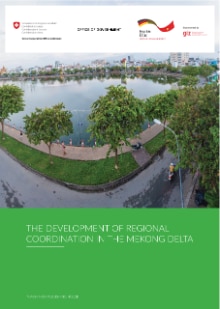
| Month | 5 |
|---|---|
| Publication year | 2019 |
| Pages | 37 |
| Price | free |
| Languages | English |
Establishing effective regional coordination in the Mekong Delta is a government priority and important for stable socio-economic and infrastructure development for the region. Presently, the delta faces significant challenges. With a population of over 20 million, the delta is vulnerable to the impact of the climate change and other factors, including floods, rising seawater, hydropower projects in the river basin, uncontrolled river-sand over-exploitation, change of land use, land subsidence, coastal and riverbank erosion as well as air, water and land pollution. Floods, in particular, are part of life in the delta, and, in normal conditions, can bring multiple benefits with farming and resource management systems adjusted to them, but changing conditions can make their location, duration and intensity unpredictable, with devastating impacts. This report represents perspectives and recommendations from the Office of the Government, ministries and leaders from 13 provinces in the Mekong Delta. Many of these issues, which are central to the future development of the Mekong Delta, cannot be addressed through existing planning mechanism, which are inherently fragmented and do not provide a means to consider the delta as a coherent whole. An effective and efficient approach to key planning challenges such as water management, disaster mitigation, ecosystems degradation, transport, electricity supply and other core services need to be based, at least in part, through mechanisms based on the close collaboration between provinces.
Last update 25.10.2023
Contact
FDFA Communication
